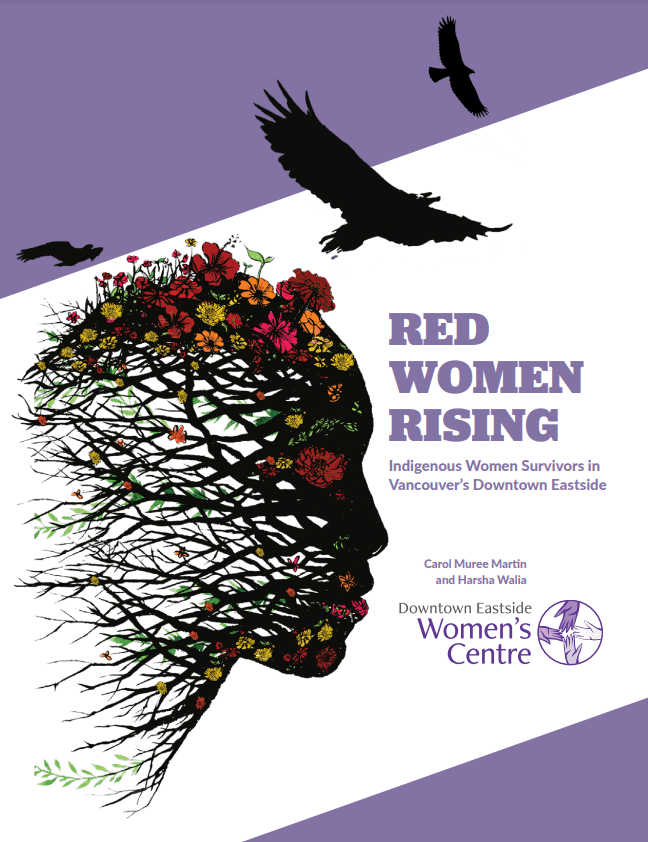38 search results
for
Children and youth
Recommendations for safe and affordable housing for Indigenous women in the DTES
Build social housing and transition homes
Recommendation 97: Any new social housing must consider the needs of Indigenous women, such as adequate space for children and extended families, cooperative housing models, accommodating cultural and ceremonial practices, equipped for mobility devices and accessibility for elders, and with integrated services such as child care, free laundry, and programming on-site.-
Category and theme:
Audience:
Recommendations to keep Indigenous families together in the DTES
Recommendation 111: Implementation of and full funding for federal Indigenous Child Welfare legislation that is attentive to specific First Nations, Metis, and Inuit needs. Ensure that Indigenous nations resume sole jurisdiction—and not simply service delivery—over child welfare for child-members of the nation who are on reserve and off reserve. This is in accordance with the United Declaration on the Rights of Indigenous Peoples.-
Category and theme:
Groups affected:
Recommendations to keep Indigenous families together in the DTES
Recommendation 112: In full partnership with First Nations, INAC must immediately:- Fully redress the inequities and structural problems of funding for First Nations children.
- Support funding and policy options proposed by First Nations for child and family services.
- Ensure that a formal compliance and reporting program be established specifically for the First Nations Child and Family Services Program.
-
Category and theme:
Audience:
Groups affected:
Recommendations to keep Indigenous families together in the DTES
Recommendation 113: We applaud the work of Dr. Cindy Blackstock and the First Nations Child and Family Caring Society and call on the federal government to comply with the legally-binding orders of the Canadian Human Rights Tribunal to:- Immediately and fully apply Jordan’s principle to all First Nations children living on and off reserve.
- Apply Jordan’s principle based on the need of the child and not limited to the normative standard of care.
- Ensure that administrative delays do not delay service provision and respond to most cases within 48 hours.
-
Category and theme:
Audience:
Groups affected:
Recommendations to keep Indigenous families together in the DTES
Recommendation 114: Implement the Truth and Reconciliation Commission’s Call to Actions on Child Welfare, recommendations in Indigenous Resilience, Connectedness and Reunification – From Root Causes to Root Solutions by Special Advisor Grand Chief Ed John, and recommendations in Calling Forth Our Future: Options for the Exercise of Indigenous Peoples’ Authority in Child Welfare by the Union of BC Indian Chiefs.-
Category and theme:
Audience:
Groups affected:
Recommendations to keep Indigenous families together in the DTES
End child apprehensions
Recommendation 115: End the apprehension of Indigenous children due to poverty or Eurocentric ideas of neglect that stem from a legacy of colonization. Poverty must not be conflated with neglect or mistreatment, and removing children from their families exacerbates cycles of trauma and poverty.-
Category and theme:
Audience:
Groups affected:
Recommendations to keep Indigenous families together in the DTES
End child apprehensions
Recommendation 116: Immediately disallow apprehensions of Indigenous babies at birth and while they are still breastfeeding.-
Category and theme:
Audience:
Recommendations to keep Indigenous families together in the DTES
End child apprehensions
Recommendation 117: Prohibit the placement of Indigenous children into non-Indigenous foster and adoptive families, and regularly report on how many Indigenous children are in government care and how many are being placed in non-Indigenous homes.-
Category and theme:
Audience:
Groups affected:
Recommendations to keep Indigenous families together in the DTES
Support Indigenous families
Recommendation 119: Making funds available for non-Indigenous foster care services but not for supporting Indigenous families perpetuates the detrimental cycle of apprehension. Increase available supports and preventative services for mothers and families.-
Category and theme:
Audience:
Groups affected:
Recommendations to keep Indigenous families together in the DTES
Support Indigenous families
Recommendation 120: Ensure families are able to maintain an adequate standard of living by raising income assistance and disability rates, ensuring safe and affordable housing, and guaranteeing food and transit allowances.-
Category and theme:
Groups affected:
